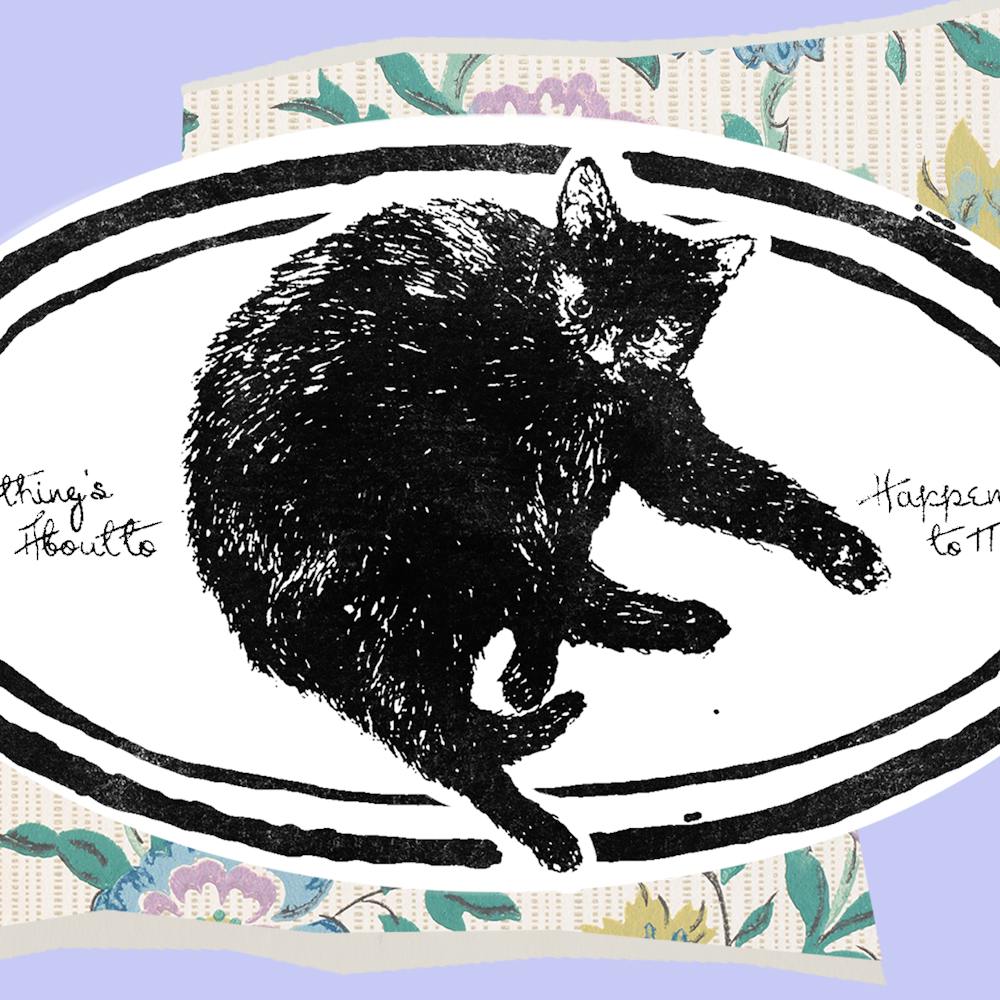We’re all familiar with the dialogue about New Year’s resolutions — do they work? Are they productive, or do they just make us feel worse about ourselves?
While the New Year’s resolution is a time-honored headache each year, social media — TikTok in particular — has given rise to the phenomenon that is the New Year’s rebrand. The rebrand is like the resolution’s shinier, more aspirational younger sister – it calls for people, especially women, to move beyond setting goals for the new year and go for complete reinvention. It takes the form of “in and out” lists cataloging the dos-and-don’ts of a new year, in videos showing off clothing hauls to support the rebrand, in new haircuts and blocking your ex on Instagram.
The rebrand asks that you look at all the aspects of yourself you disliked in the previous year and set them on fire, all while maintaining a facade of self-care and balance. So why is the concept of a New Year’s rebrand so unhealthy, and why has it become such a rapid-growing trend?
If you head to TikTok’s explore page and search “2022 Rebrand,” you’ll find thousands of videos, almost entirely created by young women, either explaining the facets of their own rebrands or coaching others on how to rebrand themselves. One viral video gives a list of products for women to buy for their rebrands, ranging from skincare products to weights and workout bands. Creators include their Pinterest searches, elaborate lists structured with Canva graphics and colors, or virtual vision boards capturing the aesthetic they hope will be their 2022. The rebrands encapsulate everything from career goals to relationships, hopes of buying a new wardrobe, etc. Each one reflects a sense of desperation to become a different person in the pursuit of happiness and acceptance.
While some aspects of the rebrand are attainable and healthy, the overarching theme is that in order to succeed in the new year, women need to scrap their old selves and become trendier, cooler, and more outwardly productive. The “ideal woman” in 2022 does light, “natural” makeup, has that "floofy" blown-out hairstyle, journals every day, drinks green juice and works out every morning before heading to her dream job, and owns a bunch of products that make her pretty and with it. She wears a lot of linen in the summer and she’s got a great collection of cashmere J-Crew turtlenecks for the winter, and she probably looks fantastic in a slip dress. She’s smart and she reads for fun instead of just for school or work, she’s politically woke without being too loud about it, she goes to the farmer’s market every week and cooks healthy, sustainable meals every night.
She’s designed, in short, to make the rest of us feel like we aren’t doing enough.
To understand the toxicity of the rebrand, we can look at some of the things that make resolutions dangerous for mental health. Setting goals based on other people’s expectations of what you should look or act like is a slippery slope towards comparison and self-doubt, and when many resolutions are centered around body image or weight loss, a well-intentioned goal can easily turn into a set of unhealthy habits. Diet culture rules the New Year’s rebrand, promoting a narrative that everyone should want to be thinner, more fit and to wear the clothes they thought didn’t look good on them last year.
Considering the TikTok generation of 13-25-year-old women and its higher susceptibility to eating disorders, the rebrand and its popularity on the hit video app can pose a legitimate challenge to body image and a healthy relationship with food. That’s not to say that setting a goal to work out more or to invest in healthier foods is going to send you down a spiral of self-consciousness, but that everything takes time and patience, and not everyone’s goals happen at the same pace. The rebrand makes it sound like everyone is going to have lost the weight or packed on the muscle by the end of January, and that’s just not realistic or healthy.
Maybe the biggest red flag of the rebrand is how it promotes the idea that humans are like corporations or products that need to be marketed and sold. Saying that women need to rebrand themselves every year implies that our identities and personalities are never permanent and that they require constant change in order to fit the societal ideals or standards imposed by social media and influencers.
This year it’s curtain bangs, being in your reputation era, those matching pastel-colored workout sets and landing your dream job before turning (gasp) 25 years old.
Sure, it would be great if we could all morph into the most sophisticated and perfect version of a human woman every year, but that standard is constantly shifting to become even more unattainable, and striving to match it every time the clock hits 12:01 a.m. on Jan. 1 just isn’t sustainable. The idea of rebranding is designed to make us feel like we aren’t good enough if we don’t have a new look and set of personality traits each year.
The silver lining of that vast TikTok explore page is that for every five videos showing off a flashy rebrand, there’s a woman reminding her followers that this practice isn’t necessary. There is a sense of awareness that we don’t need to jump through these yearly hoops, it just needs to be more widespread.
The reason the rebrand is so popular is that it feels good to talk about it or make those lists — it makes you feel like you’ve already accomplished something by laying out your vision for 2022. When you post that video or see someone who has similar goals or things you want, you feel validated and seen. Rebranding is a viral trend for the same reason that TikTok dances or silly animal videos are: It scratches an itch in people’s brains.
Nobody constructs their rebrand with malicious intent or to make others feel inadequate — that’s a side effect that comes regardless of how hard we try to be unproblematic or welcoming of everyone’s likes and dislikes.
So if we aren’t rebranding, what are we doing to grow in the new year? I’m personally trying to focus on doing more of what made me happy and healthy in 2021 while taking note of the things that didn’t work last year and modifying them. I’m not putting pressure on myself to be a new person this year, and I’m not planning on buying new clothes or anything else that will make me feel like a drastically different version of myself. Sure, I got a haircut over winter break, and I’m enjoying the new clothes I scored via Christmas gifts, but I’m trying to be consistent in reminding myself that my own personality and the things I like are perfectly adequate for 2022.
I’m still going to wear stretchy pants and sweaters most of the time, and I’m setting a goal to be more consistently active instead of a goal to lose weight. I don’t need to spend money and energy on reinventing myself, but it will be an uphill climb to accept that I like myself as I am. The culture that gave birth to the rebrand wants women to dislike their personalities and bodies so they have to keep putting time into changing them, and that’s a difficult cycle to break out of.
Nonetheless, my biggest goal for 2022 isn’t necessarily to change but to make sure my priorities reflect the person I know I’ve always been. Instead of altering my personality or my appearance, I’d like to change the things that make me feel bad and add to the things that make me feel good. It’s not a rebrand by a long shot, but it feels like growth. I made a vision board, but it doesn’t look like a lot of the ones I’ve seen on social media — it has pictures of hikes I’d like to go on, cats to represent my plan to adopt one when I move out of my on-campus dorm, books I’d like to read and cheese boards that look fun to make and to eat.
These are all things I loved in 2021, just with the intention of devoting more energy to them in 2022. I’m not trying to be preachy or to say that my way of looking at the new year is inherently better than everyone else’s—I just hope that we as a collective can recognize how people profit from our insecurities and work to reclaim the “new year, new me” concept as a positive and healthy reminder that we don’t have to change to be worthy. Once we validate the unchanging aspects of ourselves, we can begin to focus on what makes us happy and appreciate how those things make us who we are. Women are worth more than a rebrand, and hopefully, we can start to see that in 2022.
Support student media!
Please consider donating to The State News and help fund the future of journalism.
Discussion
Share and discuss “I'm not 'rebranding' in 2022, and here's why you shouldn't either ” on social media.







